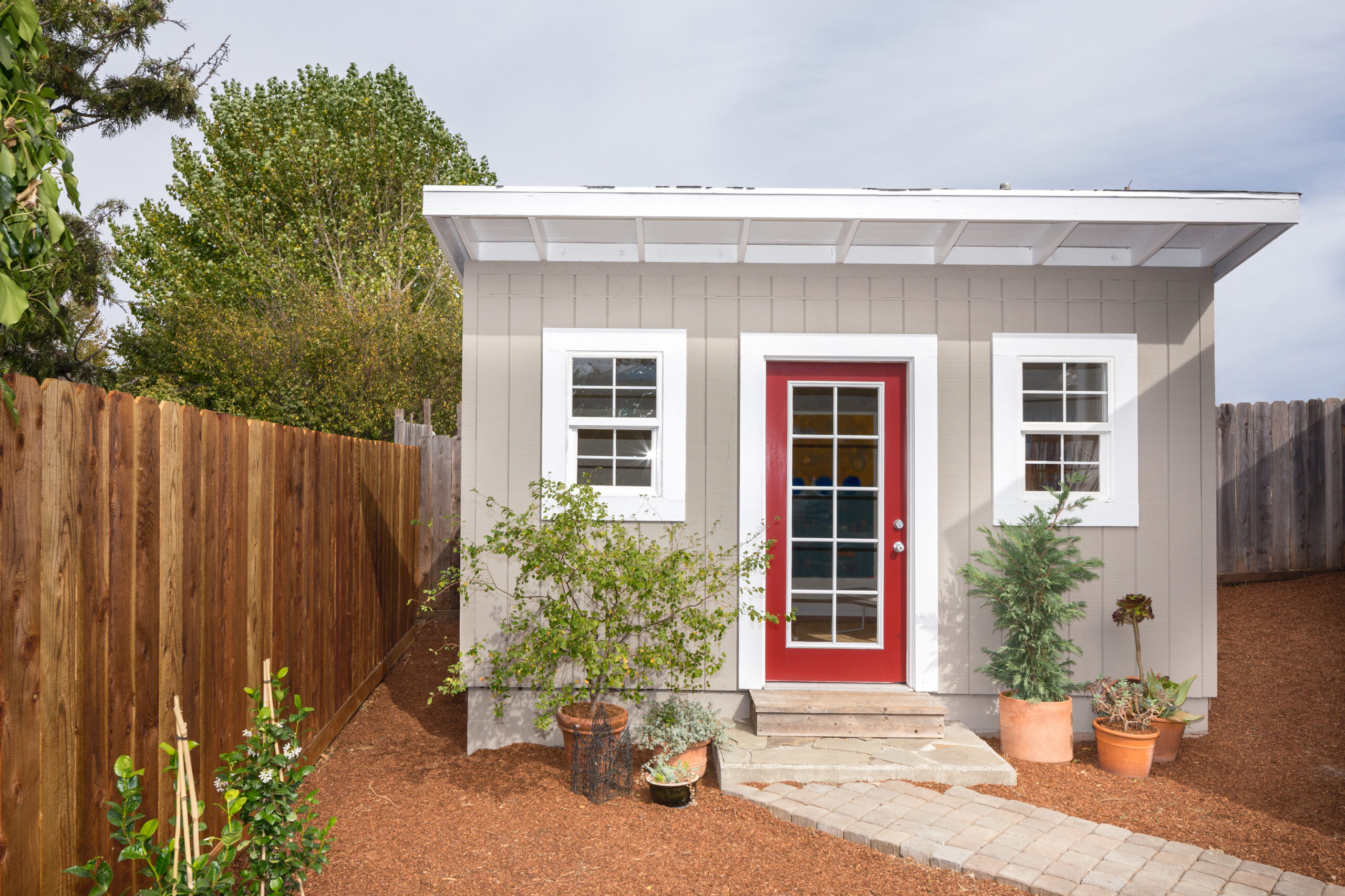An accessory dwelling unit (ADU) is a self-contained living space within or on the same property as a principal dwelling unit. By definition ADUs are generally smaller in size than traditional detached single-family homes which means that they are often more affordable and blend in well with low and moderate-density development.
House Bill 1337 (codified as RCW 36.70A.680, 681 and 696) requires fully planning cities and counties to allow two ADUs on all residential lots that allow single family homes within an urban growth area, with some limitations. If a jurisdiction does not meet the periodic update deadline (Periodic Update – Washington State Department of Commerce), any conflicting rules will be preempted by state statute.
Overview of ADU Requirements
Cities and counties fully planning under the Growth Management Act (GMA) are required to regulate ADUs consistent with RCW 36.70A.680-.681 and .696-.699 within urban growth areas. This includes, but is not limited to:
- Allow two ADUs per residential lot which may be attached, detached, or a combination of both, or conversion of existing structures
- Allow an ADU of at least 1,000 square feet
- Collect no more than 50% of the impact fees charged for the principal unit
- May not require the owner to occupy the property, except if the ADU property is a short-term rental
- Allow sale as independent units
- Modify parking requirements based on distance from a major transit stop and/or lot size
In addition to providing informational materials, Commerce supports jurisdictions by providing technical assistance and early review and comment on draft regulations that implement statutory requirements.
Guidance materials
- Accessory Dwellings Fact Sheet (Word) — This customizable information sheet is intended to be shared at the local level. It includes information on how middle housing and accessory dwelling unit requirements work together.
- ADU Guidance (PDF) —This guide document aims to assist in the understanding and regulatory requirements of ADUs. The audience is local government staff.
- ADU Checklist (Word) — A tool that jurisdictions can use to compare their existing code requirements for ADUs against statutory standards. Not mandatory to use but can help in ensuring state statutes are being met.
- ADU building permit checklist (Word) — This document is intended to be used when a local jurisdiction, using the state law on ADUs, receives a building permit. This document may be used in conjunction with an existing local checklist to reflect all local regulations, so long as other standards do not conflict with the ADU statute.
- For preempted/superseded jurisdictions, this customizable poster may be used to help inform your community about any preemption. Note, the fillable text boxes will appear once the document is downloaded. Any section of local regulation which conflicts with state statute RCW 36.70A.680-.681, is preempted:
Webinars
- City requirements and recommendations:
- County requirements and recommendations:
Homeowners should check with their local jurisdiction for site specific ADU requirements. Washington cities are implementing the changes in state law and using a variety of creative tools to demystify ADUs for homeowners and make the development process more accessible.
Homeowners may benefit from the 3-year property tax exemption
As provided in RCW 84.36.400 or WAC 458-16-080, property owners may apply for a 3-year property tax exemption when making extensive remodeling to a single-family dwelling, including constructing an accessory dwelling unit. Applications should be submitted before the remodeling is complete. The remodel cost must not exceed 30 percent of the assessed value of the structure prior to remodeling.
The application link is here: Exemption for Physical Improvement to a Single-Family Dwelling (PDF)
Homeowners may choose to sell an ADU independently of a principal unit
State law allows for ADUs in many jurisdictions to be owned independently of a principal unit. This option creates benefits for property owners and communities alike. More information on separate sale of ADUs for homeowners is included in the Separate Sale of ADUs fact sheet (PDF).
Senior citizens may benefit from property tax exemptions for their homes and an ADU
As provided in RCW 84.36.383 senior citizens can receive property tax exemptions for their homes and an ADU. This statute applies to taxes levied for collection in 2025 and after. Senior citizens occupying their primary residence can claim this exemption once taxes have been imposed. This can be used for a person who sells, transfers or is displaced from their residence under certain circumstances.
Any homeowner considering building and/or renting out an ADU should be aware of the following
- If you rent the ADU, Washington State Landlord and Tenant laws apply.
- You must report net income on tax returns and may deduct portions of property tax, utilities and other fees.
- What to Know About Accessory Dwelling Units when applying for an FHA loan.
Pre-approved plans
There are several ways a local jurisdiction can support ADU development, including but not limited to:
- Ensuring that local codes are consistent with state statutes
- Providing preapproved plans, consolidated permits and/or expedited reviews
- Identifying where sewer, water and stormwater facilities are available to support an ADU.
- Defining when an ADU can connect to the principal unit’s sewer, water or other utility connection.
- Clarifying connection requirements and other standards for sale of units – either by condominium or unit lot subdivision processes.
- Consider proportional system development charges for a broader range of ADU sizes
Defining fees and development charges applicable for the full development of the project – no surprise fees in the process.
Local government should also be clear about the local health departments policy for developing ADUs on lots with septic systems or connection requirements for sewer. King County provides an example memo outlining ADUs using on-site sewage systems (PDF).
